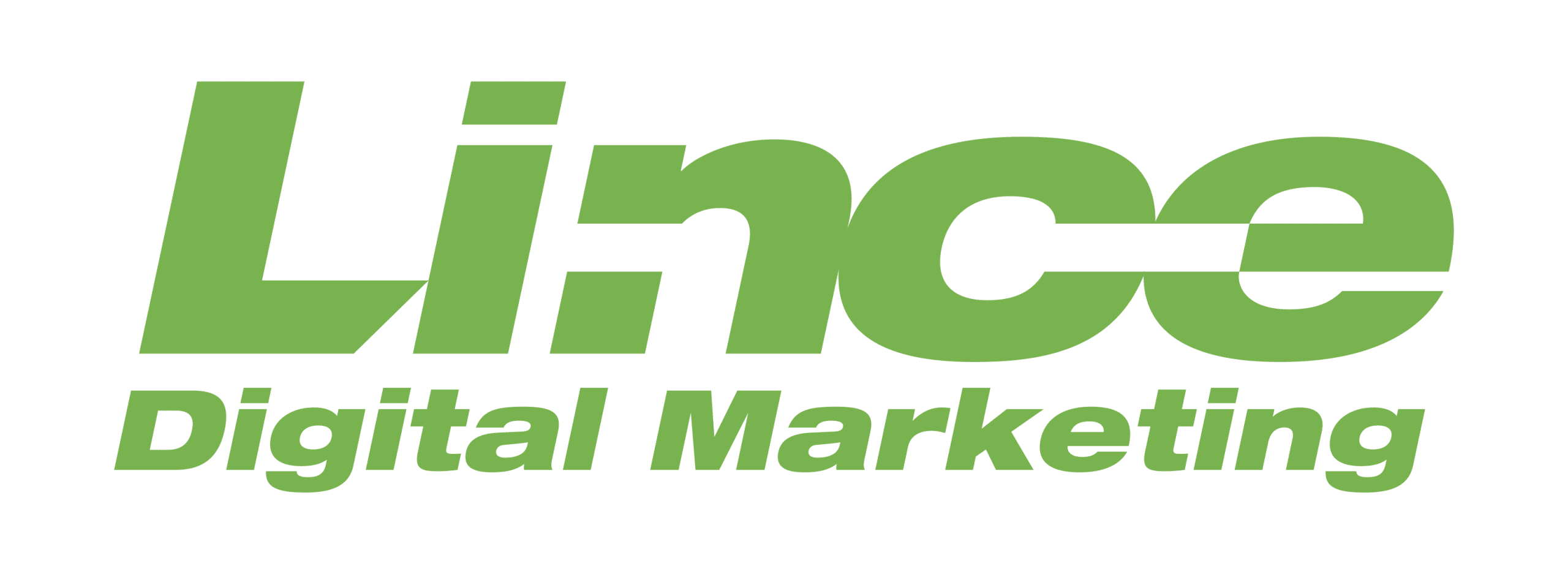Know the benefits of having a centralized customer management system (CRM / Customer Relationship Management).
Welcome to the customer relationship management (CRM) world, where businesses can revolutionize their marketing and customer management strategies. Building meaningful customer relationships is vital for success in today’s fast-paced business landscape. That’s where a centralized CRM system comes into play, acting as your ultimate ally in managing and nurturing these valuable connections.
In this blog post, we will dive deep into the beautiful world of CRMs, exploring what they are, their benefits to businesses of all sizes, how to use them effectively, and even discover some top-notch CRMs explicitly tailored for small businesses. So fasten your seatbelts as we embark on a journey that will transform your approach to customer management forever! Let’s get started!
What is a CRM?
What is a CRM? It’s a question that often pops up when discussing customer management systems. Simply put, a CRM (Customer Relationship Management) is a powerful software or platform designed to help businesses organize and streamline customer interactions. It is a centralized hub storing all crucial customer data and communication history, providing easy access for teams across various departments.
A robust CRM system enables businesses to gain valuable insights into customers’ preferences, behavior patterns, and purchase history. By capturing and analyzing this data, companies can tailor their marketing strategies more effectively and personalize the customer experience.
But it doesn’t stop there! A CRM facilitates seamless collaboration among team members by allowing them to share information, track tasks, assign responsibilities, and monitor progress. This ensures that everyone is on the same page when managing customer interactions.
Moreover, CRMs have automation features that simplify repetitive tasks such as sending follow-up emails or scheduling reminders for important meetings or appointments. This not only saves time but also improves efficiency in handling day-to-day operations.
A CRM acts as your trusty sidekick in managing relationships with your valued customers. Its comprehensive suite of tools and capabilities empowers businesses to deliver exceptional service while maintaining strong connections with clients throughout their journey. So buckle up because we’re just scratching the surface of what CRMs have in store for you!
The Benefits of Having a CRM
A Customer Relationship Management (CRM) system is essential for businesses looking to streamline and enhance their customer management processes. By centralizing all customer data in one place, a CRM can provide numerous benefits that can help drive business growth and success.
A CRM allows businesses to have a 360-degree view of their customers. This means having access to comprehensive information about each customer, including their contact details, purchase history, interactions with the company, and more. With this valuable data, businesses can better understand their customers’ needs and preferences, enabling them to deliver personalized experiences and targeted marketing campaigns.
A CRM helps improve communication within the organization. All departments can access the same up-to-date customer information in real-time. This ensures everyone is on the same page when interacting with customers and providing seamless service across different touchpoints.
Moreover, having a centralized CRM system enhances efficiency by automating repetitive tasks such as data entry or follow-up reminders. This frees up valuable time for sales teams to focus on building customer relationships rather than getting bogged down by administrative work.
Additionally, a CRM enables effective lead management by tracking leads throughout the sales pipeline from initial contact through conversion. Sales teams can prioritize hot leads based on predefined criteria and ensure they take advantage of all potential opportunities.
Furthermore, a well-implemented CRM provides insightful analytics and reporting capabilities that enable businesses to track key performance indicators (KPIs), measure campaign effectiveness, and identify areas for improvement.
This data-driven approach empowers companies to make informed decisions regarding sales strategies or marketing initiatives, resulting in higher ROI.
Lastly, a good CRM fosters collaboration among team members.
It allows users across different departments, like sales, customer support, and marketing, to seamlessly share information, collaborate on projects, and stay connected.
These collaborative features promote cross-functionality, tackle roadblocks faster, and ultimately boost productivity.
In conclusion, a CRM offers many benefits that can positively impact businesses.
How to Use a CRM
A CRM (Customer Relationship Management) system can significantly benefit your business. Here are some tips on how to make the most out of it:
1. Familiarize Yourself: Take the time to understand all the features and functionalities of your CRM system. This includes learning to input customer data, track interactions, and set follow-up reminders.
2. Organize Your Data: Ensure all customer information is accurate and up-to-date in your CRM database. Categorize contacts based on their preferences or purchase history, which will help you tailor marketing campaigns specifically for them.
3. Streamline Communication: Utilize the communication tools within your CRM to stay connected with customers. Send personalized emails, schedule meetings or calls directly from the platform, and keep track of all interactions in one place.
4. Automate Tasks: Take advantage of automation features offered by your CRM system to save time and improve efficiency. Set up automated email responses or trigger notifications for specific customer actions.
5. Analyze Metrics: Use the reporting capabilities of your CRM to gain insights into customer behavior patterns, sales trends, and campaign performance metrics. This data can help you make informed decisions about optimizing marketing strategies.
Remember that using a CRM is an ongoing process; regularly update records, monitor analytics, and adapt based on changing customer needs and market conditions.
The Different Types of CRMs
The world of customer relationship management (CRM) systems is vast and varied, with numerous options. Each CRM has unique features and benefits, catering to the specific needs of different businesses. Here are some of the different types of CRMs available in the market today:
1. Operational CRM: This type focuses on streamlining and automating various operational processes such as sales, marketing, and service automation. It enables businesses to effectively manage their day-to-day activities and enhance customer satisfaction.
2. Analytical CRM: Analytical CRMs focus on gathering data from multiple sources within a business to gain insights into customer behavior patterns, preferences, and trends. These insights can then be used to make informed decisions regarding marketing strategies, product development, and overall business growth.
3. Collaborative CRM: As the name suggests, this type emphasizes collaboration between different organizational departments for better customer interactions. It facilitates seamless communication among sales, marketing, and customer support teams.
4. Social CRM: With the rise of social media platforms as powerful business tools, social CRMs have gained popularity in recent years. They enable businesses to monitor conversations about their brand on social media while providing them opportunities for direct customer engagement.
5. Mobile CRM: A mobile-friendly CRM is crucial in today’s mobile-driven world, where people are constantly connected through smartphones and tablets. Mobile CRMs allow businesses to access important information anytime, anywhere, ensuring seamless integration with other devices.
6. Cloud CRM: Cloud CRMs are a recent development in the CRM space and offer several benefits over traditional CRMs. They are accessible from any device and can be managed through a web browser, making them easier for busy business owners.
7. Hybrid CRM: A hybrid CRM combines features from several different CRMs into one system. This allows businesses to find the best solution for their specific needs. It can be tailored to meet the specific needs of sales, marketing, customer support,
Each type of CRM offers unique functionalities that cater to specific business requirements.
So, consider your specific needs and requirements before choosing a CRM system for your company. A hybrid CRM is the best solution for you.
Remember, A CRM is an essential tool for businesses of all sizes. It helps to streamline and automate various processes, enabling companies to better manage customer interactions and achieve more significant business goals.
The Best CRMs for Small Businesses
The success of any small business relies heavily on effective customer relationship management. And what better way to streamline customer interactions than through a robust CRM system? With so many options available, choosing the best CRM for your small business can be overwhelming. But fear not! We’ve researched and compiled a list of top-notch CRMs that are perfect for small businesses.
One excellent option is HubSpot CRM. It offers a range of features, including contact management, email tracking, and deal tracking – all for free! Plus, it integrates seamlessly with other HubSpot tools like marketing automation and sales enablement.
Zoho CRM might be the one for you if you’re looking for something more customizable. It allows you to tailor your CRM to fit your needs. It provides features like lead generation, social media integrations, and analytics.
Another popular choice is Salesforce Essentials. This user-friendly CRM combines sales and service tools in one platform. It offers contact management, opportunity tracking, email integration, and AI-powered insights.
For those on a tight budget but still needing powerful CRM functionality, consider Freshsales. Its intuitive interface makes it easy to track leads, manage contacts, schedule appointments, and create custom reports – all without breaking the bank.
No matter which option you choose from this list or beyond, selecting a CRM that aligns with your unique business requirements is essential.
It should enhance efficiency, simplify processes, and ultimately improve customer satisfaction.
Because when it comes down to it, a successful small business knows how crucial maintaining solid relationships with its customers truly is.
So get started; explore these CRMs today and watch your business thrive!
How to Implement a CRM
Implementing a CRM (Customer Relationship Management) system can bring numerous benefits to your business. Still, it’s essential to have a clear plan in place for its successful implementation. Here are some critical steps to follow when implementing a CRM:
1. Define your goals: Identify what you want to achieve with the CRM system. Whether improving customer satisfaction, streamlining sales processes, or increasing marketing effectiveness, having clear goals will help guide your implementation strategy.
2. Choose the right CRM solution: With so many options available in the market, selecting a CRM that aligns with your specific business needs and requirements is crucial. Consider factors like scalability, integration capabilities, and user-friendliness before deciding.
3. Get buy-in from stakeholders: Implementing a CRM is not just an IT project—it requires involvement from various teams across your organization. Engage key stakeholders early on and ensure they understand how the system will benefit their respective roles.
4. Customize and configure: Tailor the CRM system to meet your unique business processes and workflows. This may involve mapping data fields, setting up automation rules, or integrating existing systems for seamless data transfer.
5. Provide comprehensive training: A successful implementation relies on adequate training for all users of the CRM system—sales teams, customer support staff, marketing professionals, etc.—ensuring they are comfortable using it effectively in their daily tasks.
6. Monitor progress and make adjustments: Keep track of key performance indicators (KPIs) related to your goals and regularly assess whether the implemented CRM delivers expected results or if any adjustments need to be made.
By following these steps during the implementation process, you can harness the full potential of a centralized customer management system (CRM). It takes time and effort initially but can significantly enhance productivity, sales, and overall business success in the long run!
Conclusion
In today’s fast-paced business environment, effective customer relationship management is crucial for the success and growth of any company. A centralized customer management system (CRM) provides numerous benefits that streamline your marketing efforts, improve customer satisfaction, and boost overall business performance.
By implementing a CRM, you can easily track and analyze customer interactions, capture valuable data, and effectively personalize your marketing campaigns to target specific segments. This not only helps in attracting new customers but also strengthens existing relationships with your current clientele.
Furthermore, a CRM enhances collaboration among different departments within your organization by providing access to real-time information about customers’ preferences, behaviors, and purchase history. This ensures smooth team communication, improving efficiency in handling sales processes, resolving queries promptly, and delivering personalized services.
When choosing the right CRM for your small business needs, several options are available depending on budget constraints, scalability requirements, and industry-specific features. Some popular choices include HubSpot CRM, Zoho CRM, and Salesforce Essentials.
Implementing a CRM may seem daunting, but proper planning, prioritization, and training can seamlessly integrate into your existing systems without disrupting day-to-day operations. Start by identifying key goals or pain points you want the CRM to address, then select the appropriate software solution.
Next, cleanse and import relevant data into the system and ensure all team members are trained to use it effectively.
In conclusion, a centralized customer management system or CRM is an invaluable tool for businesses of all sizes.
It enables companies to streamline their marketing activities, improve sales performance, enhance customer service, and build long-lasting relationships.
With its ability To consolidate data from various sources, increase efficiency through automation, arrange workflow efficiently, and assign tasks based on priority or skill set, A well-implemented CRM will give businesses an edge over competitors.
Suppose you haven’t considered using a comprehensive CRM solution for your business. In that case, it’s time to start exploring the options available and consider implementing a CRM system that best suits your needs.















